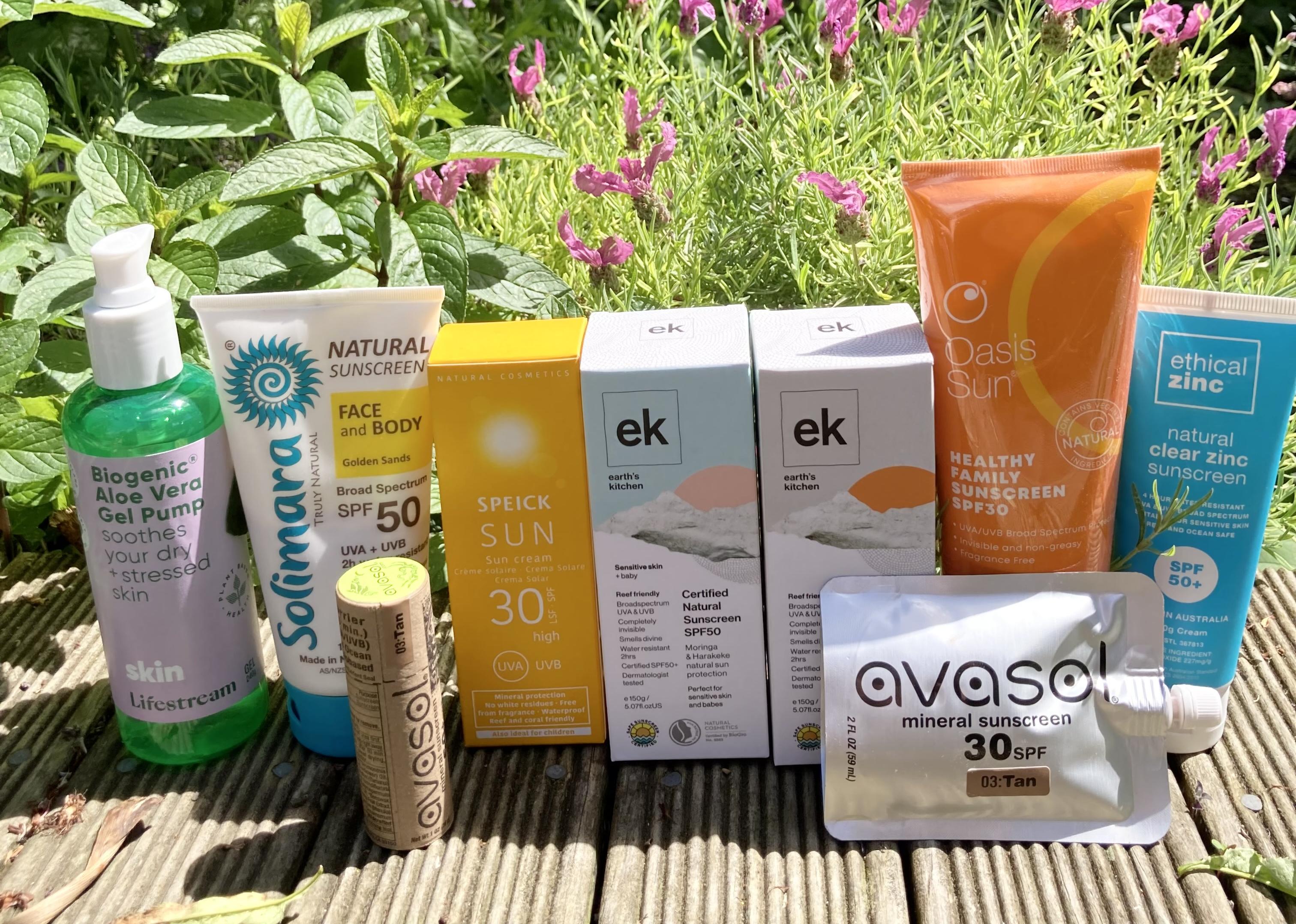
A Complete Guide to Natural Sun Protection: Nourish, Shield, and Soothe Your Skin This Summer
As summer approaches and we spend more time outdoors, skin protection becomes essential. Sun care goes beyond applying sunscreen—it's also about nourishing your skin from the inside and soothing it afterward. Here’s a simple, natural approach to sun care that incorporates nutrient support, gentle sunscreen, and effective aftercare to keep your skin healthy and resilient throughout the season.
1. Nutrients for Sun Protection
Supporting your skin from within with specific nutrients strengthens its resilience to sun exposure. Research shows that antioxidants can help minimize the effects of UV radiation, reducing both sunburn risk and signs of premature aging.
-
Astaxanthin: Nature’s Internal Sunscreen
This potent antioxidant, derived from microalgae (Haematococcus pluvialis), protects skin from UV-induced oxidative stress by scavenging free radicals before they can damage skin cells. A 2010 study published in Carotenoid Science highlighted that astaxanthin supplements improve skin elasticity and reduce wrinkles, while protecting against photodamage. Regular intake of astaxanthin (4–12 mg daily) before sun exposure has been shown to increase skin resilience, making it a natural shield against the sun’s effects. However, it’s essential to pair it with a physical sunscreen for complete protection. -
Boosting Sun Tolerance with Beta-Carotene
A natural pigment found in carrots, sweet potatoes, and other vibrant vegetables, beta-carotene is converted to vitamin A in the body and has been shown to reduce sun sensitivity. A study published in Photochemistry and Photobiology found that consuming beta-carotene-rich foods or supplements over time can reduce the risk of sunburn, particularly in fair-skinned individuals. Regular intake enhances the skin’s defenses and may even improve skin tone. -
Vitamin C for UV Defense and Collagen Support
As a potent antioxidant, vitamin C protects skin cells from UV damage by neutralizing free radicals before they cause harm. Vitamin C also plays a vital role in collagen synthesis, which is essential for maintaining skin firmness and elasticity. Research in The Journal of Clinical and Aesthetic Dermatology found that topical and oral vitamin C can both enhance photoprotection and reduce sunburn risk. Foods high in vitamin C, like citrus fruits, berries, and leafy greens, or a supplement, can help build natural UV resilience. -
Skin-Repairing Benefits of Collagen
Collagen, a key structural protein in the skin, helps repair and maintain elasticity, especially after UV exposure, which can damage collagen fibers. Collagen supplements or foods that boost collagen, such as bone broth, can support skin renewal and reduce fine lines. Collagen supplements, studied in The Journal of Drugs in Dermatology, were shown to improve skin elasticity and hydration, reducing visible signs of sun damage. -
Vitamin E for Sun Resilience
Often paired with vitamin C for its synergistic antioxidant effects, vitamin E helps maintain skin moisture and repair. It’s been found to reduce free radical damage caused by UV exposure, which can deplete the skin’s natural moisture barrier. A study published in The American Journal of Clinical Nutrition found that combined supplementation of vitamin E and C was more effective at reducing UV damage than either vitamin alone. Foods rich in vitamin E, like nuts, seeds, and avocados, provide valuable support. -
Wound healing Zinc
This essential mineral is known for its anti-inflammatory and wound-healing properties, which can reduce the severity of sunburn and aid in skin recovery. Zinc plays a role in DNA repair, a critical process after skin cells are damaged by UV exposure. It’s also a common ingredient in mineral sunscreens, where it serves as a physical barrier on the skin’s surface.
2. Aloe Vera Gel for Sunburn Relief
Sometimes, despite our best efforts, sunburn happens. Aloe vera gel is one of the most effective natural remedies for soothing burned skin. Known for its cooling and anti-inflammatory effects, aloe vera helps reduce redness and supports faster recovery. A study published in Burns journal found that aloe vera gel accelerates wound healing and reduces inflammation, making it ideal for sunburned skin. For best results, apply chilled, pure aloe vera gel directly to the skin immediately after sun exposure.
3. Choosing a Natural Sunscreen
Natural sunscreens offer effective, gentle protection, especially for those with sensitive skin. They use physical blockers like zinc oxide or titanium dioxide, which sit on the skin’s surface to reflect UV rays rather than absorbing them. A study in Photodermatology, Photoimmunology & Photomedicine confirmed that physical blockers are more stable under UV exposure and less likely to cause irritation or disrupt hormones, as some chemical filters, like oxybenzone, may.
Moreover, natural sunscreens are typically free from synthetic fragrances, parabens, and other potentially irritating ingredients. They’re also more environmentally friendly, as chemical sunscreens have been shown to damage coral reefs and marine life. Choosing a natural sunscreen supports your skin’s health and the environment, making it a responsible choice for summer sun care.
Embrace the Sun with a Balanced Approach
With nutrient support, natural sunscreen, and aftercare like aloe vera, you can fully embrace the joys of summer while keeping your skin protected, nourished, and resilient. This well-rounded approach helps you enjoy sun-filled days knowing your skin is well-cared for inside and out.



